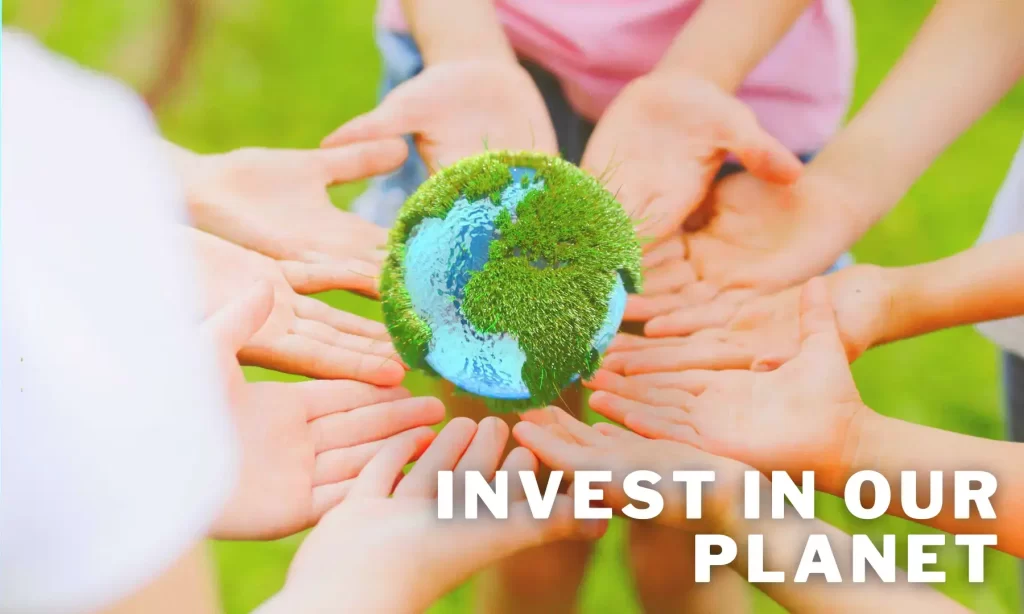List Of Contents
- 1
- 2 The Importance of Earth Day and Combating Climate Change
- 3
- 4 Innovative Initiatives for Sustainable Transportation
- 5
- 6 Green Energy Solutions for a Sustainable Future
- 7 Sustainable Agriculture Practices to Reduce Carbon Footprint
- 8
- 9 Recycling and Waste Management Strategies to Minimize Environmental Impact
- 10
- 11 Promoting Eco-Friendly Lifestyles Through Sustainable Fashion and Products
- 12
- 13 Raising Awareness Through Social Media Campaigns and Digital Activism
- 14
- 15 Collaborative Efforts for Global Climate Action
- 16
- 17 The Role of Businesses in Driving Sustainability and Corporate Social Responsibility
- 18
- 19 Taking Action for a Greener Future
- 20 Author
As we continue to grapple with the urgent need to combat climate change, Earth Day presents a vital opportunity for individuals and organizations to step up and make a difference. In this article, we delve into a range of innovative initiatives that are revitalizing our planet and driving positive change.
The Importance of Earth Day and Combating Climate Change
Earth Day serves as a poignant reminder of our responsibility to protect and preserve the planet we call home. It is a day when people from all walks of life come together to raise awareness about the pressing issues of climate change and environmental degradation. This annual celebration serves as a catalyst for action, inspiring individuals and communities to take meaningful steps towards a more sustainable future.

Innovative Initiatives for Sustainable Transportation
Transportation is a major contributor to greenhouse gas emissions, making it a crucial area for innovation in combating climate change. Forward-thinking companies and organizations are embracing sustainable transportation solutions to reduce their carbon footprint. From electric vehicles to shared mobility services, these initiatives aim to revolutionize the way we move while minimizing environmental impact.
One such initiative is the development of electric vehicles (EVs). These vehicles run on electricity rather than fossil fuels, significantly reducing emissions. With advancements in battery technology, EVs are becoming more accessible and practical for everyday use. Governments and businesses are also investing in the development of charging infrastructure to support the widespread adoption of EVs.
Another innovative approach to sustainable transportation is the rise of shared mobility services. Car-sharing platforms, bike-sharing programs, and ride-hailing services are gaining popularity, offering convenient and eco-friendly alternatives to traditional modes of transportation. By encouraging the use of shared vehicles, these initiatives aim to reduce the number of private cars on the road, leading to fewer emissions and less congestion.
Furthermore, the development of high-speed rail networks and the promotion of public transportation systems are also key initiatives in creating sustainable transportation options. By providing efficient and affordable alternatives to private vehicles, these initiatives not only reduce emissions but also improve accessibility and connectivity within communities.
Green Energy Solutions for a Sustainable Future
Transitioning from fossil fuels to renewable energy sources is crucial in combating climate change and reducing our dependence on finite resources. Innovative green energy initiatives are driving the transition towards a more sustainable future. From solar and wind power to geothermal and hydropower, these initiatives harness the natural elements to generate clean and renewable energy.
Solar energy is one of the most promising green energy solutions. Solar panels capture sunlight and convert it into electricity, offering a sustainable alternative to traditional energy sources. Advancements in solar technology have made it more efficient and affordable, making it an attractive option for both residential and commercial use. Many countries and organizations are investing in large-scale solar projects to meet their energy needs while reducing carbon emissions.
Similarly, wind power has seen significant growth in recent years. Wind turbines convert the kinetic energy of the wind into electricity, providing a clean and renewable energy source. Offshore wind farms, in particular, have the potential to generate large amounts of energy while minimizing the impact on land. By harnessing the power of wind, these initiatives contribute to a greener and more sustainable future.
Geothermal energy, derived from the heat of the Earth’s core, is another innovative solution for clean energy generation. Geothermal power plants tap into underground reservoirs of steam or hot water to produce electricity. This renewable energy source offers a reliable and consistent power supply while producing minimal emissions. Countries with geothermal resources are investing in the development of geothermal power plants to reduce their carbon footprint and promote sustainable energy practices.
Hydropower, generated from the energy of flowing or falling water, is another green energy solution that has been utilized for decades. Dams and turbines capture the energy of rivers and waterfalls, converting it into electricity. Hydropower is a reliable and renewable source of energy, contributing to the reduction of greenhouse gas emissions. However, it is important to consider the environmental impact of large-scale hydropower projects, as they can disrupt ecosystems and alter natural water flows.
Sustainable Agriculture Practices to Reduce Carbon Footprint
Agriculture plays a significant role in climate change, with practices such as deforestation, intensive livestock farming, and excessive use of fertilizers contributing to greenhouse gas emissions. However, innovative sustainable agriculture initiatives are emerging to mitigate the environmental impact of food production and reduce the carbon footprint associated with agriculture.
One such initiative is regenerative agriculture, which focuses on improving soil health and biodiversity while sequestering carbon. By implementing practices such as cover cropping, crop rotation, and reduced tillage, regenerative agriculture helps restore degraded soils and enhance the resilience of agricultural systems. These practices not only reduce carbon emissions but also improve water retention, enhance nutrient cycling, and promote biodiversity.
Another innovative approach is vertical farming, which involves growing crops in vertically stacked layers, using hydroponic or aeroponic systems. Vertical farming maximizes land use efficiency, reduces water consumption, and eliminates the need for chemical pesticides. By bringing food production closer to urban centers, vertical farming reduces transportation emissions associated with long-distance food supply chains.
Furthermore, the use of precision agriculture technologies, such as drones and satellite imagery, enables farmers to optimize resource allocation and reduce waste. By precisely targeting inputs such as water, fertilizers, and pesticides, farmers can minimize their environmental impact and increase the efficiency of food production.
Recycling and Waste Management Strategies to Minimize Environmental Impact
Proper waste management is crucial in reducing the environmental impact of our consumption patterns. Innovative recycling and waste management initiatives are transforming the way we handle waste, minimizing landfill waste and promoting a circular economy.
One such initiative is the development of advanced recycling technologies. Traditional recycling processes often have limitations, with certain materials being difficult to recycle or ending up in landfills. Advanced recycling technologies, such as chemical recycling and pyrolysis, offer solutions for the recycling of complex materials, such as plastics. These technologies break down materials into their basic components, allowing for the creation of new products without degradation in quality.
Another innovative approach is the implementation of waste-to-energy systems. These systems convert waste materials into renewable energy sources, such as biogas or electricity. For example, organic waste can be processed through anaerobic digestion to produce biogas, which can be used for heating or electricity generation. By harnessing the energy potential of waste, these initiatives reduce greenhouse gas emissions and minimize the need for fossil fuel-based energy sources.
Additionally, the promotion of recycling and waste reduction at the individual and community level is crucial in minimizing environmental impact. Initiatives such as recycling education programs, community recycling centers, and zero-waste campaigns encourage individuals to adopt sustainable waste management practices and reduce their consumption of single-use items.
Promoting Eco-Friendly Lifestyles Through Sustainable Fashion and Products
The fashion and consumer goods industries have a significant environmental footprint, with issues such as textile waste, water pollution, and the use of harmful chemicals. However, innovative initiatives are driving the adoption of sustainable practices in these industries, promoting eco-friendly lifestyles and reducing the environmental impact of our consumption habits.
One such initiative is the rise of sustainable fashion. By embracing concepts such as slow fashion, fair trade, and circular design, the fashion industry is moving towards more sustainable and ethical production practices. Sustainable fashion brands focus on using organic and recycled materials, reducing waste through upcycling and recycling, and ensuring fair working conditions throughout the supply chain. These initiatives not only reduce the environmental impact of the fashion industry but also promote conscious consumerism.
Similarly, the consumer goods industry is embracing sustainable product design and packaging. From biodegradable packaging materials to refillable and reusable products, companies are finding innovative ways to minimize waste and pollution. By prioritizing sustainable materials and production processes, these initiatives contribute to a more circular economy and reduce the reliance on finite resources.
In the digital age danatoto have become powerful tools for raising awareness about climate change and mobilizing individuals for action. Innovative initiatives leverage the reach and influence of social media platforms to engage people in the fight against climate change.
One such initiative is the use of social media influencers to promote sustainable lifestyles and environmentally friendly practices. Influencers with a focus on sustainability and climate activism use their platforms to educate and inspire their followers to make more conscious choices. By sharing personal experiences, tips, and recommendations, these influencers play a crucial role in shifting consumer behaviors towards more sustainable options.
Furthermore, digital activism initiatives harness the power of social media to mobilize individuals for climate action. Hashtag campaigns, online petitions, and virtual protests are just a few examples of how digital activism is making an impact. These initiatives enable individuals from around the world to come together, voice their concerns, and demand change from policymakers and corporations.

Collaborative Efforts for Global Climate Action
Climate change is a global challenge that requires collaborative efforts and international cooperation. Innovative initiatives are fostering collaboration among governments, organizations, and individuals to drive global climate action.
One such initiative is the formation of international agreements and partnerships. The Paris Agreement, for example, brought together countries from around the world to commit to reducing greenhouse gas emissions and limiting global warming. Similarly, organizations such as the United Nations Framework Convention on Climate Change (UNFCCC) facilitate dialogue and coordination among nations in addressing climate change.
Furthermore, grassroots movements and community-led initiatives are driving local climate action and inspiring global change. Youth-led organizations, such as Fridays for Future and Extinction Rebellion, have mobilized millions of young people to demand immediate and ambitious action on climate change. These movements are raising awareness, advocating for policy changes, and pressuring governments and corporations to take responsibility for their environmental impact.
Businesses play a crucial role in driving sustainability and corporate social responsibility. Innovative initiatives are pushing the boundaries of what it means to be a responsible and environmentally conscious business.
One such initiative is the adoption of sustainable supply chain practices. Companies are increasingly scrutinizing their supply chains to ensure ethical sourcing, fair labor practices, and sustainable production processes. By working closely with suppliers and implementing strict sustainability standards, these initiatives aim to reduce the environmental and social impact of their operations.
Moreover, businesses are embracing the concept of the circular economy, where resources are kept in use for as long as possible through recycling, reusing, and remanufacturing. By designing products with a focus on longevity and recyclability, companies contribute to the reduction of waste and the conservation of resources.
Additionally, many businesses are setting ambitious sustainability targets and committing to carbon neutrality. Through investments in renewable energy, energy efficiency measures, and offsetting initiatives, companies are taking responsibility for their carbon emissions and working towards a greener future.
Taking Action for a Greener Future
In conclusion, Earth Day serves as a powerful reminder of our collective responsibility to combat climate change and protect the planet. The innovative initiatives highlighted in this article demonstrate the incredible potential for positive change when individuals, organizations, and governments come together.
From sustainable transportation solutions to green energy alternatives, sustainable agriculture practices to recycling and waste management strategies, there are numerous avenues for action. By embracing eco-friendly lifestyles, promoting sustainable fashion and products, leveraging the power of social media, and collaborating on a global scale, we can make a significant impact on combatting climate change and revitalizing our planet.
On this Earth Day, let us be inspired by these extraordinary initiatives and take meaningful steps towards a more sustainable and resilient future. Together, we can create a greener world for present and future generations. Let us seize this opportunity and make every day Earth Day.
Also read: Empanadas Unveiled: Master the Art of Crafting Heavenly Handheld Delights


